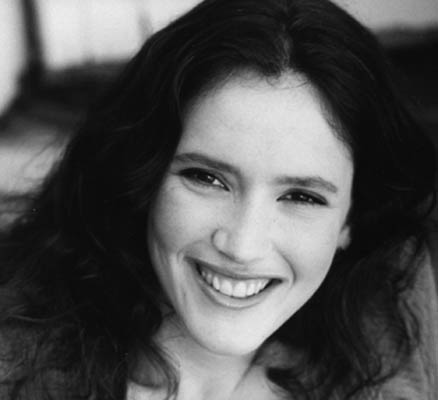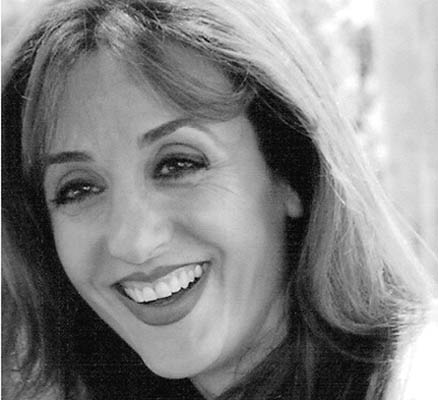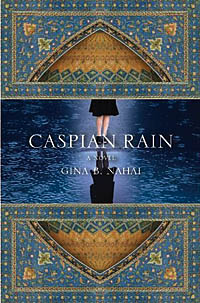The Women’s Literary Festival Celebrates Year Three
Ladies Write
Born of a desire to celebrate women’s writing and the diversity of the female experience, a group of Santa Barbara women launched the Women’s Literary Festival (WLF) in 2006. The first annual WLF featured presentations by eight female writers, including bestselling novelist Gail Tsukiyama. The following year, the festival welcomed writer and social activist Rebecca Walker as well as Jacqueline Winspear, author of the Maisie Dobbs mystery series. This year, the WLF brings to Santa Barbara Cristina Garcia, a Cuban-born novelist whose books address the complexities of dual cultural identity, and Paula L. Woods, author of the Charlotte Justice mystery series and specialist on the culture of Los Angeles. In advance of the festival, we spoke with WLF featured writers Tanya Shaffer and Gina B. Nahai about the writing process, the themes they tackle in their work, and what it means to them to be “women writers.”

Woman Wanderer
Tanya Shaffer on Travel Writing
by Elizabeth Schwyzer
As an artist, Tanya Shaffer resists categorization. Playwright, solo performer, book author, theater producer, traveler-Shaffer has roamed the world in search of rich experiences and then toured the nation with the results. Her solo show Let My Enemy Live Long!, based on her trip up West Africa’s Niger River to the legendary city of Timbuktu, won critical acclaim in 1999. In 2003 her autobiographical book Somebody’s Heart Is Burning: A Woman Wanderer in Africa was published by Vintage, and Baby Taj, a play based on her travels in India, premiered in 2005.

Do you think of your work as belonging specifically to the “female writers” genre? I don’t usually think of it that way, I mean, I am a woman and I’m perfectly happy to be part of a women’s event, but I don’t typically think of myself as a woman writer. Vogue magazine reviewed Somebody’s Heart Is Burning and said it was “Perhaps the best of [recent] adventure books penned by women.” Why does that “penned by women” have to be there? I do think that female travel writers perhaps approach the genre slightly differently. My travel writing is definitely very character-centered.
What is it about travel that captures your imagination? I think travel just really wakes me up. It puts me in a state of hyper-awareness that’s hard to get to in daily life. I’m so intrigued by other cultures-when I’m traveling away from home I get more insight into my own life and culture as well, just by contrast, and by that alertness of mind that sort of comes to me like a drug when I’m out of the country. I find that the freedom of anonymity tends to propel me into interesting situations.
What came first for you, acting or writing? I always did both, from the time I was a kid. It’s in my diary when I was nine: I said I wanted to be an actor and a writer on the side. At some point that shifted; these days I don’t really act any more. I’m fortunate; my husband has a real job, so I can work on writing and not worry if the paycheck isn’t going to come for three years.
How do the two art forms overlap for you? I think for a long time I saw them as separate. I didn’t really combine them until college, and even then, it was sort of against my will. I knew they were feeding each other, but I didn’t see it that way. I started as a theater major, and then shifted to creative writing. In my senior year, I started writing and performing my own work at a coffee house. That led to solo performance, which was a lot of what I did as an actor. And now, of course, I’m writing for theater. I didn’t plan to write plays, either, but dialogue is one of the things I’m good at, because of my background in theater.
Tell me a little bit about your writing process, and how motherhood has changed it. I’ve never been a super-prolific, turning-stuff-out-really-fast kind of person. This will be my fifth major play in the course of 20 years. It has always taken me a long time to create something new. I think having a child I have become more efficient because I have less time. I’m actually pregnant now with my second child. Obviously, I haven’t been able to do the kind of travel I did before. I still travel-for a four-year-old, my son has traveled a lot-but I’ve only been away from him overnight twice in four years. I was 36 when I had him, and I really did a lot before that, so it was a conscious choice. I think as he gets older we can do more off-the-beaten-track stuff, and I look forward to seeing what that will yield in terms of a different travel experience.
This festival is geared toward writers and readers alike-what’s your advice to both? I’m a big reader, too, so I’m one of both parties. For people who want to write, I always say just write. There’s the thing of wanting to “be a writer,” and then there’s just writing. What you learn, the more writers you know, is that there is totally not one way. Get into situations with other writers, go to workshops, create deadlines. If you finish something, you’ll figure out what to do with it.

The Worth of a Woman
A Conversation with Gina B. Nahai
by Pema Teeter
Gina B. Nahai’s bestselling novels speak from behind the latticework of Tehran’s class divides, between poor Jews and rich “Jews of substance,” a Muslim elite, and the stifling social mores that confine women to inconsequence. In rich and storied prose, her characters attempt to escape the destiny they were born into, and discover what there is to gain and lose in leaving the past behind.
You speak with authority from every vantage point, from the Jewish ghetto to the ¼ber-rich Jewish and Muslim circles of Tehran. How do you do that? I can see everybody’s point of view. It’s never hard to put myself in the shoes of the rich woman or the Muslim woman because I’ve been observing these things forever. : A lot of Iranians who read Caspian Rain were struck by how much of themselves they recognized.

I get the sense from reading Caspian Rain that to cross the class divide you can rise up but then you’ve got to step on the people that you’ve risen above. There’s no inhabiting both worlds : The upper classes are so eager to reject the lower, because in the lower classes they see sort of a reflection of what they’ve been or what they might have been seen as. : So, in that sense, if you want to become part of the society, you can’t really drag with you your embarrassing background, your family.
It’s interesting that your books have been translated into 16 languages, and that so many people from different strata are reading them. What I found with writing is the more personal you become the more universally your story resonates. So the smaller the story, as in the more you focus on the essentials of the human heart, the more people from all different parts of the world will identify with it. You’re trying to touch on what’s most human in all of us. I’ll get emails from people in Poland and China and Taiwan saying, “I thought I was reading my own story, you were describing me.” Yet, they have nothing in common with these characters except for the underlying emotion.
What does your family think of your writing on these themes? They’re proud of it. They get sometimes worried or maybe uncomfortable : At the same time, though, the wider Iranian public, I think they’re very welcoming, very relieved that someone is telling these stories. When I started out, there were two Iranian women writing in the West : One wrote a couple of books and then stopped writing, and there was me, so I was sort of the lone voice that was telling the story of these women like it really was.
Your novels all have these heartbreaking stories of women who have few if any choices in life. What would you say about the worth of a woman? The worth of a woman is the worth of any human being. But what I learned over the years is the best thing you can make of your life, and the only thing ultimately you leave behind, is the memory of the kindness that you showed other people. It’s remarkable that in this country you have leeway to show kindness in so many ways to so many people if you’re so inclined. Whereas, if you notice in my books, a lot of times the women are the ones who are very cruel to other women, because the oppressed tend to turn inward and oppress one another. [Here] you have the luxury of reaching out to others and showing kindness without sacrificing your own standing in the world.
4•1•1 The 2008 Women’s Literary Festival will take place on Saturday, February 9, from 8:30 a.m.-3:30 p.m. at Fess Parker’s DoubleTree Resort. For more information or to register, visit womensliteraryfestival.com.



